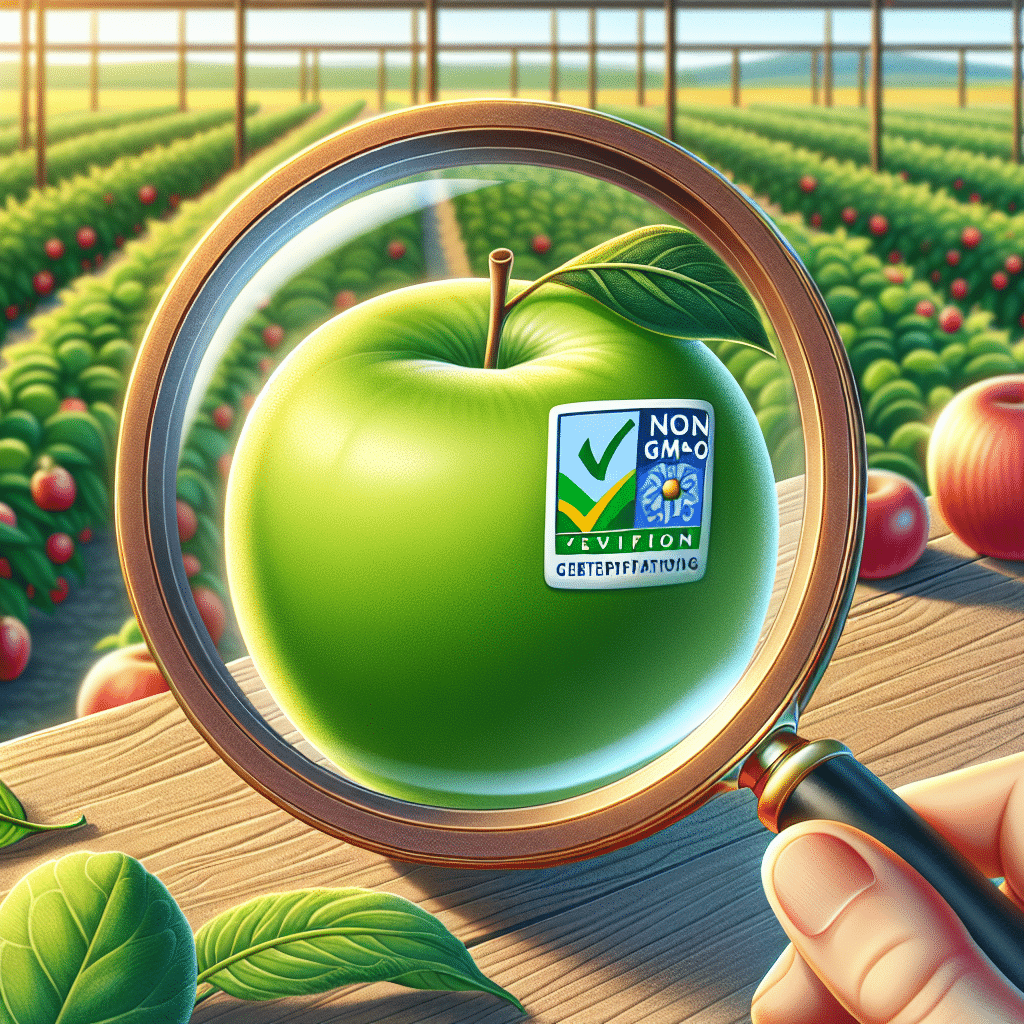Non-GMO Verification: Ensuring Food Integrity
-
Table of Contents
- Non-GMO Verification: Key to Authentic and Trustworthy Food Choices
- Understanding Non-GMO Verification
- The Importance of Non-GMO Verification
- How Non-GMO Verification Works
- Case Studies and Statistics
- Challenges in Non-GMO Verification
- Conclusion: The Value of Non-GMO Verification
- ETprotein: Your Trusted Source for Non-GMO Plant Proteins
Non-GMO Verification: Key to Authentic and Trustworthy Food Choices

In an era where consumers are increasingly concerned about the origins and contents of their food, Non-GMO verification has become a crucial aspect of ensuring food integrity. This article delves into the importance of Non-GMO verification, the process behind it, and why it matters to both consumers and producers.
Understanding Non-GMO Verification
Non-GMO verification refers to the process of confirming that a product does not contain genetically modified organisms (GMOs). GMOs are organisms whose genetic material has been artificially manipulated in a laboratory through genetic engineering. This technology creates combinations of plant, animal, bacteria, and virus genes that do not occur in nature or through traditional crossbreeding methods.
The Importance of Non-GMO Verification
Consumers are becoming more health-conscious and environmentally aware, leading to an increased demand for transparency in food production. Non-GMO verification serves as a reassurance that the food products they purchase are produced according to certain standards that exclude GMOs. Here are some reasons why Non-GMO verification is significant:
- Health Concerns: Some consumers opt for Non-GMO products due to concerns about the long-term health effects of consuming genetically modified foods.
- Environmental Impact: Non-GMO farming practices are often viewed as more sustainable and less harmful to the environment.
- Ethical Considerations: Many people choose Non-GMO products because of ethical issues related to the patenting of seeds and the control of the food supply by a few large corporations.
- Support for Traditional Agriculture: Purchasing Non-GMO verified products can be seen as a way to support farmers who choose to grow crops using traditional breeding methods.
How Non-GMO Verification Works
The Non-GMO verification process is rigorous and involves several steps to ensure that a product meets the strict standards set forth by Non-GMO verification organizations. The process typically includes:
- Compliance with Standards: Products must comply with specific Non-GMO standards, which include guidelines on the percentage of GMO contamination that is acceptable.
- Supply Chain Transparency: Companies must provide detailed information about their supply chain to verify that the ingredients used are Non-GMO.
- Testing: Regular testing of risk ingredients is conducted to ensure they are not genetically modified.
- Traceability: There must be a traceable and transparent supply chain from the farm to the finished product.
- Third-Party Verification: An independent third-party verifier conducts audits and inspections to certify that the product meets Non-GMO standards.
Case Studies and Statistics
Several case studies highlight the success of Non-GMO verification in building consumer trust and increasing market share. For instance, a well-known cereal brand saw a significant rise in sales after obtaining Non-GMO verification, as consumers felt more confident about the quality and safety of their products.
Statistics also support the growing trend towards Non-GMO products. According to the Non-GMO Project, as of 2021, there were over 60,000 Non-GMO Project Verified products from over 3,000 brands, reflecting the increasing demand for Non-GMO options.
Challenges in Non-GMO Verification
Despite its importance, Non-GMO verification faces several challenges, including:
- Cross-Contamination: The risk of cross-contamination with GMO crops is a constant concern for Non-GMO producers.
- Regulatory Differences: Varying regulations across countries can complicate the verification process for international products.
- Cost: Obtaining Non-GMO verification can be costly, which may be a barrier for smaller producers.
Conclusion: The Value of Non-GMO Verification
Non-GMO verification plays a vital role in today’s food industry by providing consumers with the assurance that the products they are buying are authentic and produced without genetic engineering. It supports environmental sustainability, health, and ethical food production practices. While there are challenges to achieving Non-GMO verification, the benefits to consumers and producers alike make it a worthwhile endeavor.
ETprotein: Your Trusted Source for Non-GMO Plant Proteins
If you’re looking for high-quality, Non-GMO plant proteins, ETprotein is the company to turn to. Their extensive range of protein products, including organic rice protein, pea protein, and various seed proteins, are verified to be free from genetic modifications. ETprotein’s commitment to non-GMO, allergen-free, and neutral-tasting ingredients makes them an ideal partner for industries seeking to cater to health-conscious consumers.
About ETprotein:
ETprotein, a reputable plant protein vegan protein Chinese factory manufacturer and supplier, is renowned for producing, stocking, exporting, and delivering the highest quality organic bulk vegan protein and plant proteins. They include Organic rice protein, clear rice protein, pea protein, clear pea protein, watermelon seed protein, pumpkin seed protein, sunflower seed protein, mung bean protein, peanut protein etc. Their offerings, characterized by a neutral taste, non-GMO, allergen-free attributes, cater to a diverse range of industries. They serve nutraceutical, pharmaceutical, cosmeceutical, veterinary, as well as food and beverage finished product distributors, traders, and manufacturers across Europe, USA, Canada, Australia, Thailand, Japan, Korea, Brazil, and Chile, among others.
ETprotein specialization includes exporting and delivering tailor-made protein powder and finished nutritional supplements. Their extensive product range covers sectors like Food and Beverage, Sports Nutrition, Weight Management, Dietary Supplements, Health and Wellness Products, and Infant Formula, ensuring comprehensive solutions to meet all your protein needs.
As a trusted company by leading global food and beverage brands and Fortune 500 companies, ETprotein reinforces China’s reputation in the global arena. For more information or to sample their products, please contact them and email sales(at)ETprotein.com today.














